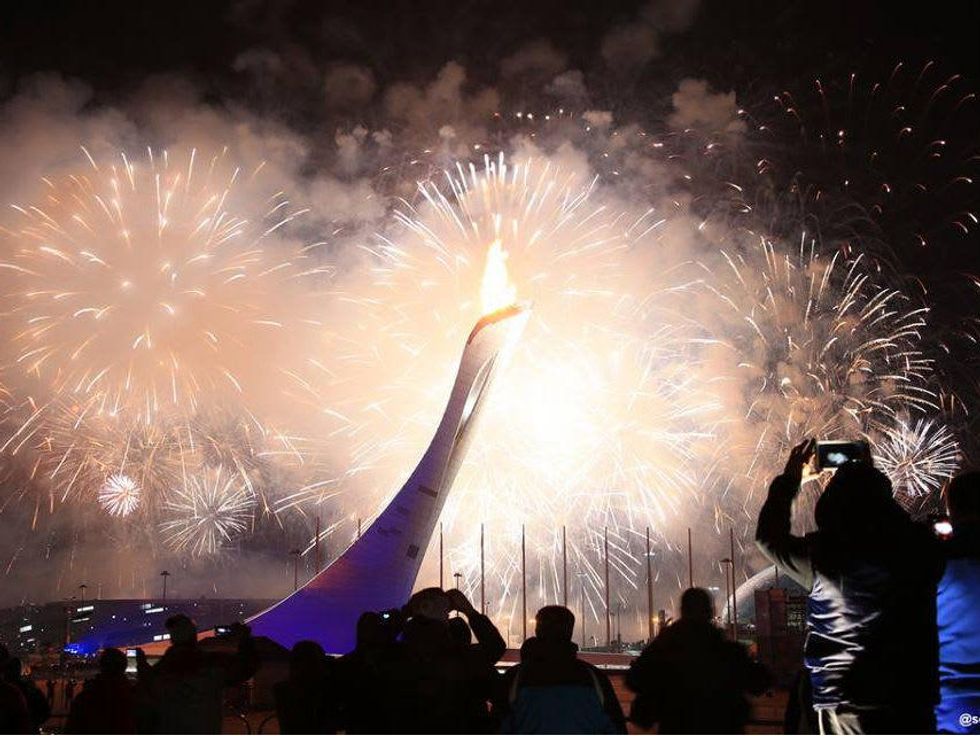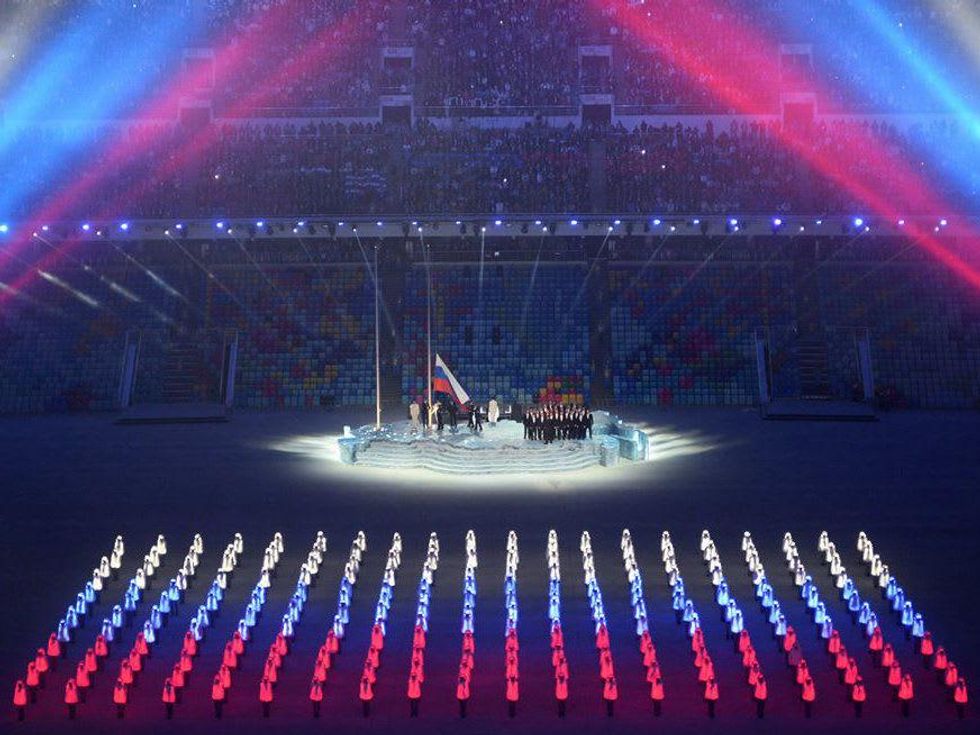Local Views on Russia
Russian Austinites react to Winter Olympics with disparate views of hope & apprehension
Russia has been at the forefront of many discussions during the course of the month. Before February, the country had its share of headlines regarding its role in international affairs, human rights issues, as well as numerous profiles of its leader, President Vladimir Putin. But the 2014 Winter Olympics in Sochi — which conclude on Sunday, February 23 — have presented a unique opportunity to understand a nation that is still an enigma to many outside of its borders.
In an effort to understand what the Games mean to stateside Russians, CultureMap moved past the talking heads and columnists, and instead turned to the thoughts of Russians who call Austin home. As we discovered, they have diverse thoughts on what the Olympics have meant to their homeland — thoughts that reflect the complicated nature of Russia in general.
Professor Marina Potoplyak, Ph.D., an instructor in the Department of Slavic and Eurasian Studies at the University of Texas at Austin, shared reservations of what the games represent for Russia, while also recognizing that the Olympics provide a unique chance to instill a greater desire for Austinites to learn about the region.
"There was a lot of sense of premonition and apprehension towards the games because a lot of Russians know what was going on in terms of corruption and embezzlement of funds before the games," says Potoplyak, a native of the city of Saratov. "So it’s really hard to celebrate the games and to be so enthusiastic and patriotic about them."
Many have seen the games as a PR campaign for Putin — an attempt to cloud issues such as gay rights or the treatment of his political opponents. The long list of issues surrounding the Winter Olympics has attracted a mostly negative public eye, but even the controversial limelight can provide a unique opportunity for an educator.
"Of course, I’m more happy that more interest has gone towards Russia and there’s more focus on Russia’s role in the world: who are Russians, what are Russians, what is Russian cuisine. As an instructor who teaches Russian language and culture, it’s a joy for me," says Potoplyak. "But I just can’t be ignorant of political events going on behind us, so I’m not 100 percent enthusiastic about it."
That isn’t to suggest that there's no enthusiasm among Russians in Austin. Varda Salkey, owner and operator of Russian House of Austin, has enjoyed the opportunity to introduce customers to her home country, while they watch the games with a hot bowl of borsch.
A former athlete from Moscow who played basketball for Georgetown University, Salkey understands the excitement that many athletes from Russia and across the world are feeling. "To me, the Olympics is just that friendship of all the countries — sportsmanship, fellowship, friendship," she says. "It’s fun. It’s not just a competition. Everyone’s living in the same Olympic Village. It’s all of the tourists getting together. It doesn’t matter what country you represent and whom you cheer for, it’s just everybody being their together screaming and being emotional."
"I’ve been an athlete and I was in the 1998 World Youth Games [in Moscow] and that was the best experience I ever had," Salkey continues. "Just staying at that village with all of the athletes from all over the world. We were exchanging languages, traditions, and little things. It was just a great feeling of just being in the middle of that."
That sense of bonding over sports and setting aside political atmosphere is not unique to the Sochi Olympics; it has been a common theme for nearly every Olympics in the last century. Still, Potoplyak expresses skepticism of whether the games in Sochi can, in any way, benefit Russian citizens.
"It’s such a waste of resources on every level," says Potoplyak. Olympic venues often go to disuse in other countries, but she notes, "for Russia, with a nation with horrible problems in infrastructure, hospitals, and schools and everything is lacking resources, here we pour $51 billion — well they embezzled half of it — but whatever remains is poured into the object that will never be used again." Political opponents of Putin, such as Alexei Navalny, have detailed many of the purported wastes of funds.
After Sunday’s closing ceremony, Potoplyak says that many Russians won’t have great expectations of changes in the country. If anything, she says, there will be a "tightening of the bolts" on everything from anti-gay laws or strong-arm tactics against Ukraine.
But, perhaps, when the spotlight leaves Sochi, there will be a new generation of Americans — and Austinites — who won’t turn a blind eye to the world’s largest country.


